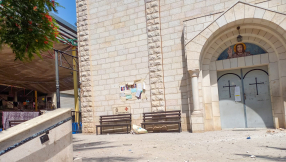Drug education works - and churches have a role to play
The Government's response has been to emphasise the importance of parents and place drug education on a statutory basis, and much of it concerns itself with drug and alcohol education in schools with a conclusion that "community-based prevention initiatives ... have not been widely assessed".
The potential for effective action in the voluntary sector - including churches and Christian organisations - is huge. I made this point at meetings of the Drug Education Forum where participants were given the opportunity to deliver comment and evidence to the Advisory Group.
The world of Advisory Groups and Government responses may seem a long way away from the needs of children and young people in their local areas but getting the policy right is essential - because resources often follow where policy leads.
During the past year there has been much Government attention paid to alcohol and drugs in policy documents which include the Youth Alcohol Action Plan as well as the Youth Crime Action Plan. The decision to place drug education on a statutory basis (for schools) is symbolic of the move to take drink and drug use by young people much more seriously than in the past.
There is a clear recognition that drug and alcohol education cannot be left entirely for schools to deliver on their own and that a community-based approach is important. The 'non-formal' sector is included - this means churches, Christian organisations and other voluntary groups!
Yet there will be no immediate injection of new resources for the sort of universal alcohol and drug education work which Hope UK specialises in. Indeed, Hope UK is currently awaiting the results of an application to the Department for Children, Schools and Families which, if not agreed will see us lose 20% of our income.
But do churches and Christian organisations need to wait for statutory investment? Hope UK believes that preventing the harm related to alcohol and other drugs is too important to be left to the Government alone.
It is good that the Government has highlighted the role that the 'non-formal sector' can play but, especially in a time of recession, we can't expect our taxes to pay for everything. Churches now have a great opportunity to get involved in alcohol and drug awareness work with the official encouragement that parents are vital.
Hope UK's current £100,000 funding from the DCSF has enabled us to focus on developing awareness sessions for parents over the last two years; partnering with Care for the Family with their Drug Proof Your Kids parenting course; and developing a two-day accredited course for Family Workers. All of this is available for churches to access.
George Ruston is the Executive Director of Christian drug education charity Hope UK www.hopeuk.org, formerly known as Band of Hope.













